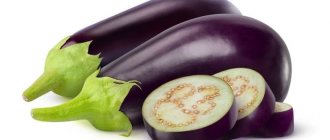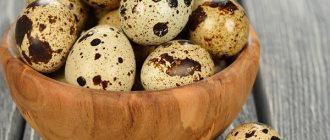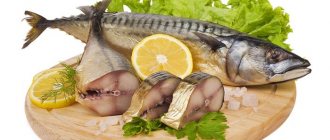The answer to the question of whether watermelon can be consumed while breastfeeding is individual. To avoid harm to the baby, the mother should introduce the product into the diet with caution. It is important to monitor your child’s reaction to a new product and remove it from the menu if unwanted reactions occur. (You can read about whether you can eat melon while breastfeeding in this article)
The benefits of watermelon during lactation
The sweet berry is a source of a large amount of useful substances. It contains vitamins A and C, which prevent viral infections and help improve skin condition. They contain pectins, which normalize the functioning of the digestive system and accelerate metabolic processes. Watermelons are rich in iron, which is necessary for a nursing mother to prevent anemia. Folic acid promotes relaxation and has a calming effect on the nervous system.
It is useful for a woman to eat watermelon when breastfeeding and because of the panthenolic acid contained in the berry. This substance normalizes sleep, which is often disturbed after childbirth. Beta-carotene helps remove harmful substances, waste, and toxins from the mother's body. The composition includes potassium, calcium, phosphorus, magnesium. The berry has a diuretic effect, prevents the formation of edema, and removes decay products from the body with urine.
There are few calories in the sweet pulp: only 27 kcal per 100 g. For this reason, this option is well suited for a snack: the girl will receive the vitamins and microelements she needs, while her body weight will not increase, and the feeling of hunger will pass.
Can a nursing mother eat watermelon?
Watermelon is a very healthy berry. It contains easily digestible sugars, pectins, vitamins B, C, and carotene. It is rich in calcium, magnesium, sodium, potassium, phosphorus, iron, organic acids, fatty oil.
This melon culture produces urinary and choleretic, anti-inflammatory, laxative, restorative effects, activates metabolism, and enhances intestinal motility.
Did you know? Watermelons were placed in the tombs of the pharaohs as a source of food for the dead in the afterlife. Watermelon seeds were found during the exploration of Tutankhamun's tomb.
Of course, such a product can only benefit the female body, weakened after childbirth.
Therefore, pediatricians are confident that it can and even should be introduced into the diet of a nursing mother, but with the following caveats:
- Use only high-quality and ripe berries.
- Eat the pulp in acceptable doses.
- Monitor the baby’s condition and stop using it if negative reactions from his body are noticed (abdominal pain, flatulence, skin rashes, diarrhea, restless behavior).
- Start introducing it into the diet with a small amount, gradually increasing it to the permissible norm.
- Consume the pulp at a distance of 1 cm from the rind. Nitrates accumulate in this place.
Possible harm from watermelon while breastfeeding
During lactation, the pulp of large berries can be harmful and cause unwanted reactions. If consumed excessively, an allergic reaction may occur in the baby. If diathesis appears in a newborn, you should immediately exclude the product from the diet; Its use is prohibited even in small quantities. The possible harm of watermelon during breastfeeding increases if the mother has a mild allergy. In addition, too much of this berry in the diet often leads to disorders of the gastrointestinal tract.
The fruits are allowed to be eaten no earlier than the end of August. Before this, most of the berries sold were grown using nitrates, which are stored in the pulp. Large amounts of nitrates can cause watermelon poisoning. These substances will negatively affect the condition of the nursing mother and can also harm the baby, as they pass into breast milk. In case of poisoning, nausea, vomiting, and stool disturbances are observed. Body temperature rises. You need to see a doctor.
How to choose a watermelon
Only the right berry can benefit the body. It is best to make a purchase at the end of August or beginning of September. This is exactly the time when the berries fully ripen, are saturated with all the necessary microelements, and acquire a pleasant, sweetish taste.
When choosing a product, you need:
- pay attention to the place of sale. It is best to make purchases only in stores or from sellers who have a certificate indicating the quality of the products;
- Avoid berries sold in stalls along the roads or piled directly on the ground. Many harmful substances settle on them, which sometimes cannot be removed even after thorough washing;
- choose berries weighing about 5 kilograms, medium size. This weight is most consistent with natural weight. If it is significantly larger, this indicates that various fertilizers and nitrates were used during its cultivation. If less, then there is a high risk of buying a completely unripe specimen, poorly enriched with vitamins and microelements so necessary for a woman;
- avoid specimens that are cut or have cracks. Harmful substances and pathogenic infections can penetrate through them;
- avoid limp, soft fruits. This indicates that they have been lying around for quite a long time and could have deteriorated;
- choose fruits only with dark green stripes without damage;
- pay attention to the tail. It should be dry, but in moderation (a tail that is too dry indicates long storage);
- choose specimens with a yellowish spot on one side. This indicates that the berry was grown in sunlight on the ground;
- look carefully at the pulp. It should have an uneven color and thin white veins. If the veins are yellow, then you should avoid using this product.
If you have any doubts when choosing a berry, then you should refrain from purchasing it.
To find out for sure whether a particular product can be eaten by a mother during lactation, it is best to consult a doctor. He will be the one who will be able to give an accurate answer based on the child’s health condition.
When you can't eat watermelon
For some diseases, eating pulp is contraindicated. You should not include sweet fruit in your diet if you have diabetes, cholelithiasis, chronic or acute inflammation of the pancreas, or pathologies of the urinary system.
It is recommended to avoid using this product if you have a high sensitivity of the digestive system, a tendency to stool disorders, or diseases associated with difficulty in the outflow of urine. Doctors also prohibit eating berries in cases where there are kidney diseases, stones in the bladder or renal pelvis.
A relative contraindication is the first 4 months of a baby’s life. Many experts advise refraining from eating red and yellow watermelon during this period, since the child’s digestive system is not yet sufficiently formed, and the likelihood of unwanted reactions is high.
Why is watermelon dangerous during lactation?
Some women who are breastfeeding still try to avoid eating sweet and aromatic melons because they are afraid of harming the baby. However, their fears are not unfounded.
What are the dangers of eating watermelon during breastfeeding? Firstly, it holds the record for its ability to accumulate nitrates. The nitrogen compounds themselves, also known as nitrates, contained in the soil do not pose any danger. But those contained in watermelon can cause severe harm to the human body.
Secondly, excessive consumption of sweet fruit can lead to a number of negative consequences for both the nursing woman and the child himself. Among the complications:
- vomit;
- increased gas formation;
- diarrhea;
- poisoning.
With such signs, especially if they appeared in the child after the mother ate a watermelon and breastfed the baby, it is necessary to seek medical help.
It is safe to eat watermelon during breastfeeding 4 months after birth
Watermelon during breastfeeding
To prevent the berry from harming the mother and newborn, a number of precautions must be taken. Watermelon should be introduced into the diet gradually, starting with small portions. You need to carefully monitor the baby's reaction. If he develops an allergy, the berry is excluded from the mother’s menu. After 1-2 months, you can try again to introduce the product into your diet.
In the first few weeks after birth, the baby's digestive system does not produce enough enzymes, so it is recommended that breastfeeding mothers avoid eating watermelon. From the middle of the second month of a baby’s life, a woman is allowed to eat a small amount of watermelon. This should be done only in cases where the child is healthy. If a baby has constipation, diarrhea or colic, you should not introduce new foods to the menu, as they may worsen the baby's condition. In the third month, the portion can be increased.
A woman can eat watermelon without worrying about the possible consequences when the baby reaches the age of 4 months. During this period, the organs of the digestive system are considered to be sufficiently formed, the required amount of enzymes necessary for digesting food is released. If the berry was previously absent from the mother’s diet, it should be introduced gradually, starting with 1-2 slices per day.
Reviews
Victoria, pediatrician
I do not recommend that breastfeeding women introduce watermelon into their diet until the baby is 4 months old. This is due to the fact that watermelon poisoning occurs quite often, which is dangerous for the woman and the child herself.
Samira, gynecologist
Breastfeeding is a period in a woman’s life no less important than pregnancy itself. At this time, a woman should pay more attention to her diet in order to minimize the risk of developing health problems for the baby. In the summer, many women come with the question of whether it is possible to eat watermelon during breastfeeding and how this will affect the child. If you use a high-quality product in small quantities, it will have a positive effect on both the woman and the baby.
Karina, 29 years old
I read a lot of reviews on women's forums about whether it is possible to eat watermelon during guards. I saw more positive reviews. Personally, I ate watermelon, but no more than 1 slice a day, when my son was 2 months old, there were no problems.
Inga, 31 years old
I ate watermelon when my daughter was 3 months old. After this she developed severe diarrhea. As the doctor explained, this is how a negative reaction to the product manifested itself. Therefore, I had to completely exclude this sweet fruit from the diet until breastfeeding was completed.
So is it possible or not to eat watermelon while breastfeeding? If you use it correctly, it will have a positive effect on the health of the nursing mother and the baby itself. If a child experiences negative reactions after consuming this product, it is recommended to completely exclude it from the diet until breastfeeding is complete.
Rules for use during breastfeeding
You should only eat ripe watermelons that do not contain harmful impurities. Unripe berries will harm the body. It is recommended to consult a doctor before introducing the pulp into your diet. This will help avoid possible complications.
Doctors recommend avoiding eating watermelons if close relatives have had an allergic reaction: there is a high probability that the baby will also suffer from allergies.
You should not eat watermelon at the same time as other foods: you may experience a feeling of heaviness in the stomach and nausea. It is better to replace a snack or afternoon snack with watermelon.
It is recommended to give the berry to another person to try before eating. If after 30-60 minutes a negative reaction does not occur, you can eat a piece of watermelon for a nursing mother. If you experience heartburn or an unpleasant taste in your mouth while eating the first piece, you should not eat watermelon.
Who should consume watermelon with caution?
Despite the undoubted benefits of watermelon, there are also contraindications for its use:
- diabetes mellitus or pancreatic disease in a nursing woman. Due to the high sugar content in watermelon, these diseases may worsen;
- one of the family members (mom or dad) is allergic to watermelon;
- In case of kidney stone disease, watermelons should be consumed with caution, as the product puts additional stress on the urinary system and can provoke renal colic.
In all other cases, eating watermelon is allowed.
What are the benefits of watermelon?
The berry is indispensable in the diet and has an excellent taste. It is considered as a cleanser for the body. Removes toxins, salts and toxic substances that have accumulated and affected your well-being. It has a diuretic effect: it relieves excess fluid and cleanses the kidneys. It is recommended to eat during the postpartum period to increase the hemoglobin level in the blood.
The culture contains components necessary for the health of children and adults:
- Vitamin C. Strengthens the immune system, protects against infectious diseases.
- Pantothenic acid. Has a positive effect on digestion.
- Potassium and magnesium. Ensure the functioning of blood vessels and the heart, recovery after childbirth.
- Iron. Enriches the blood, actively fights postpartum anemia.
- Riboflavin. Protects the retina of the eyes from harmful ultraviolet radiation.
- Folic acid. Has a beneficial effect on the child's nervous system. Helps increase milk production.
The berry is a preventive remedy for rheumatism, gout, gastritis, atherosclerosis, liver dysfunction, obesity, and cardiac dysfunction.
This is a valuable product. But is it possible to eat watermelon while breastfeeding? Treats should be avoided in early summer due to the high nitrate content and the possibility of poisoning.
Popular articles for weight loss and health
How did Bianca lose weight?
Diet Pushinka: menu rules
How did Semchev lose weight?
How did Guzeeva Larisa lose weight?











